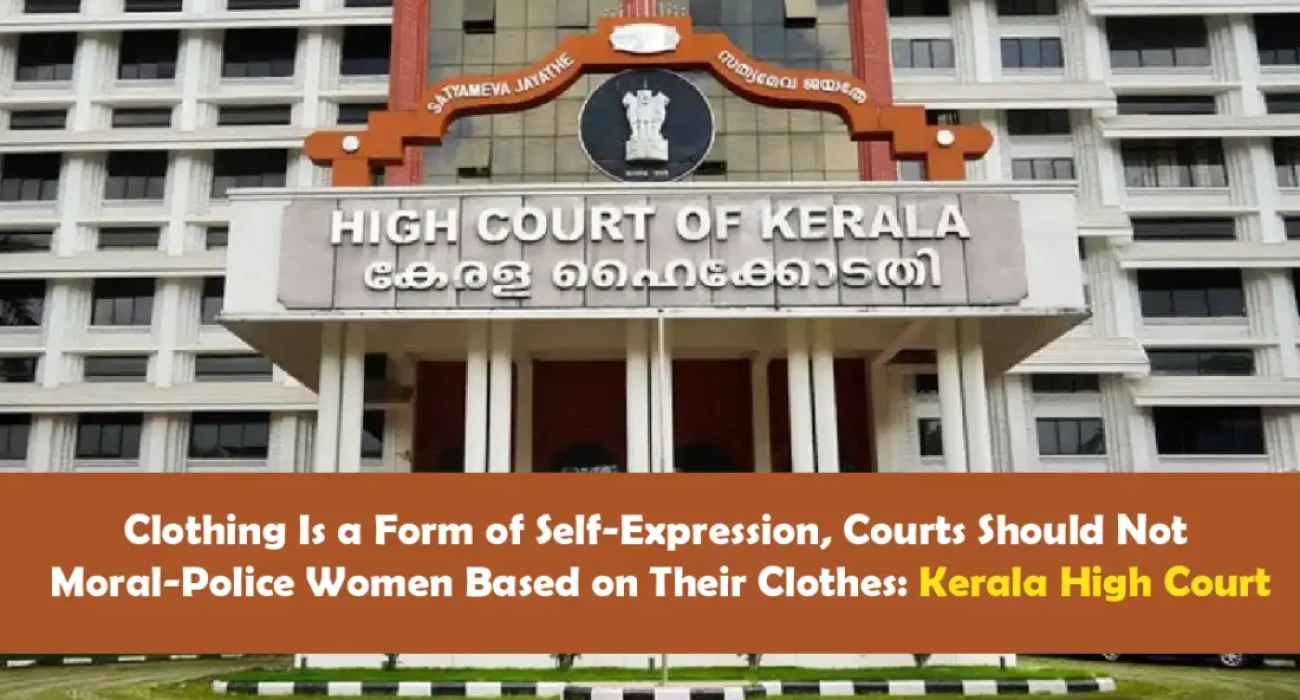

The Kerala High Court recently delivered an important judgment that spoke volumes about a woman’s right to personal liberty and autonomy. In this case, the Court made it clear during a custody case that a woman cannot be judged on the basis of her choice of clothing or personal life, and this is against the right to equality guaranteed by the Constitution. The Court also criticized the Family Court’s decision, which followed traditional gender stereotypes and moral policing.
Table of Contents
ToggleThe case was a dispute between a divorced couple over the custody of their two children. The husband produced screenshots of the wife’s photos uploaded on the Bumble dating app as evidence, in which she was wearing “revealing” clothes. The Family Court refused to grant custody of the children to the wife on the ground that she was a woman of “weak morals”.
The wife had testified before the Family Court that she had been held captive by her husband for nine months and had suffered cruelty. The wife challenged the decision of the Family Court, saying that the decision was influenced by gender-based bias and moral policing.
The petitioner argued that the Family Court’s denial of custody of the children was based on the ground that her character was judged on the basis of her appearance and social life. She said that the Court portrayed her as a woman of “loose morals” simply because of the way she dressed and met male friends. She also argued that some of the actions she took, such as the idea of hacking her husband’s computer, arose from the torture she was undergoing and did not reflect her overall character.
The plaintiff also said that the observations of the Family Court were based on traditional gender roles and moral attitudes, which cannot be acceptable in determining the eligibility of any mother.
The respondent submitted that the wife’s behavior was inappropriate, and specifically cited her posts on the Bumble app, her interactions with male friends and the language she used to establish her poor moral standing. He argued that the wife’s attire and her online activities indicated that she may not be able to provide a stable environment for the children.
The Kerala High Court reviewed the Family Court’s decision in depth. The Court made it clear that a woman’s choice of clothing is part of her personal expression and cannot be judged on the basis of traditional gender beliefs. The Court stated:
“It is inexcusable and impermissible in any civilized society to judge a woman merely on the basis of her clothing, or to draw conclusions on her virtue and her modesty, as this can only be done through patriarchal notions.”
The Court also stated that the Family Court’s finding that the wife had used “abusive” language was in a momentary outburst of anger and frustration experienced due to her inability to obtain a divorce from her husband. The Court clarified that this did not cause the Family Court to conclude that she was habitual of using such language.
Further, the Court also stated that the Family Court did not take into account the wife’s allegation that it was her ex-husband who had posted her Bumble pictures, which was an important aspect of the case. The Court observed that the wife’s online activities and behavior had to be seen in the context of the physical and mental abuse she was subjected to.
The Court also criticized that the Family Court assumed that women are sad and depressed after divorce, which reflects a sexist and stereotypical approach.
The Kerala High Court held that the Family Court’s decision was wrong as it was based on gender-based stereotypes. The Court granted permanent custody of the children to the mother, stating that the children had clearly expressed that they wanted to live with the mother, although they wanted to meet the father occasionally. The Court also stated that both the children are intelligent and capable of speaking, and they know what they want in their lives and what they expect from their parents.
The Court held that the Family Court’s observations reinforce gender-based biases and patriarchal ideas in general, which restrict women’s freedom. The Court clearly stated that women’s choices and beliefs cannot be judged by gender-based assumptions.
This decision of the Kerala High Court makes it clear that women’s personal choices, such as the way they dress and social activities, cannot be taken as an assessment of their character.
Credits: Deeksha Rai
IAW resources
Browse our help directory